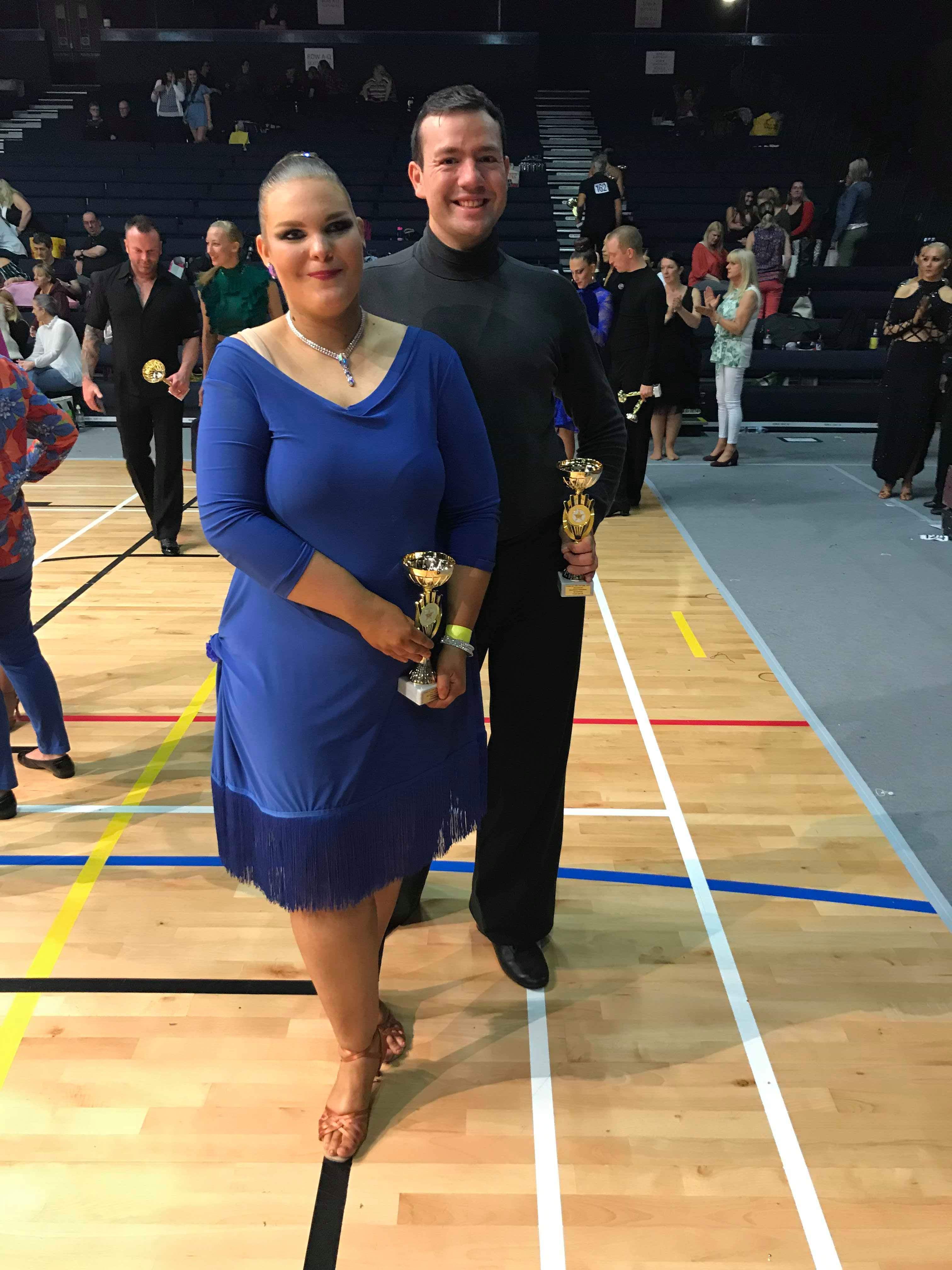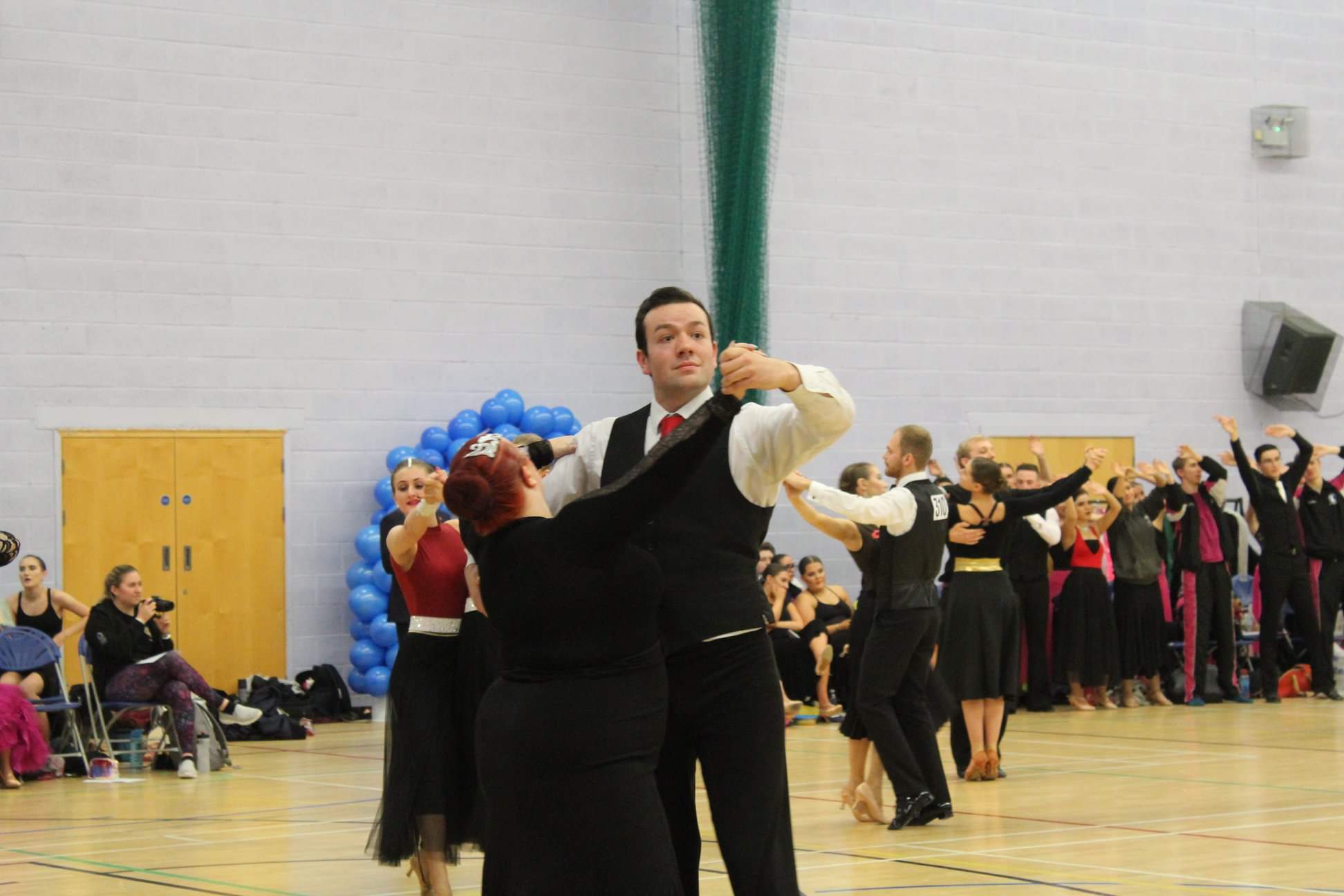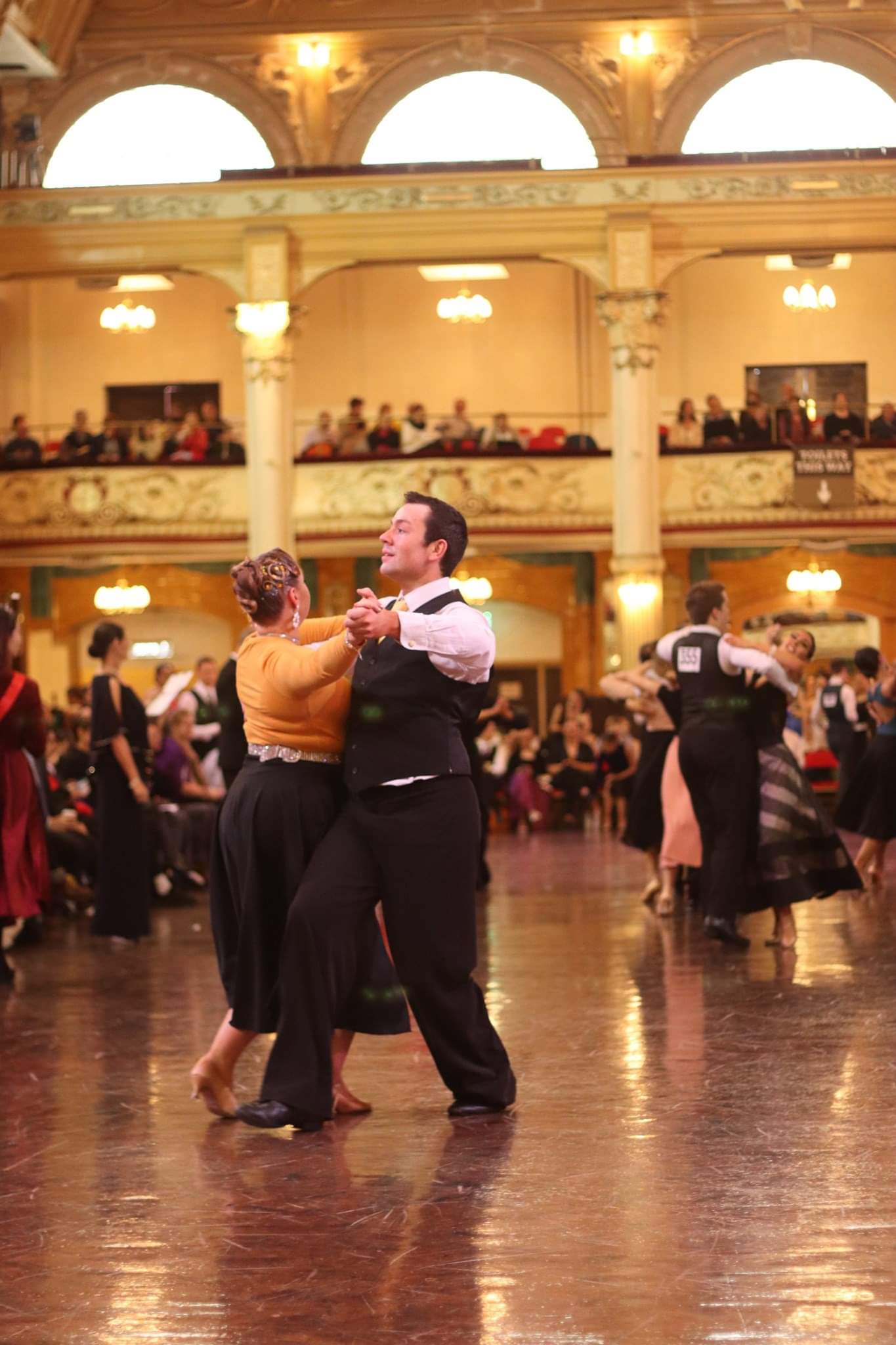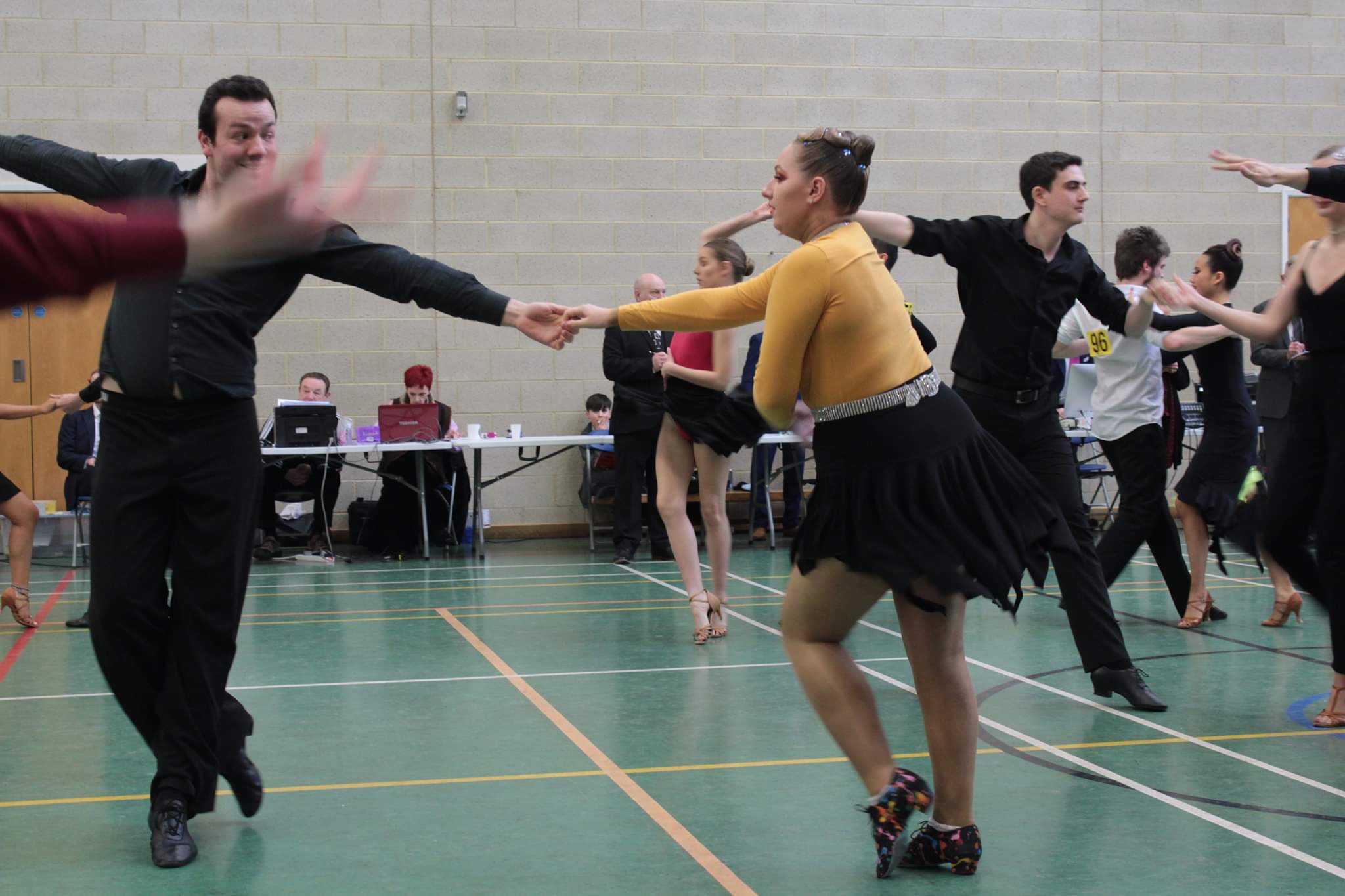Mental Health, Self Image and Dancesport
21 May 2020 - Richard Horridge

Helen and myself at Stars of the Future 2019
I was inspired to write this post after conversations with several members of the society. I have previously had to live with depression, anxiety and lack of self-belief, and had to cope with a developmental disorder while growing up and maturing. Today, I do not feel defined or constrained by any of these things. I do not like to hide behind these labels or definitions and expect myself to be judged and treated the same way as anyone who is not on the autistic spectrum.
The stress of competition causes you to lie awake at night, going over routines in your head. If only I could remember to smile! Memories of the last competition come rushing back - when I forgot half of a Cha routine and had to make it up on the spot; my partner's confusion and horror. Will we make rounds tomorrow? Will my partner speak to me again? Am I good enough?
Does any of this sound familiar? Dance can be an exceptionally demanding sport - how many other sports involve the amount of preparation that a dance competition does? Hours of 'practice' and arguments, 5am starts to do hair and makeup, driving to a random sports hall or town hall. Having to present this 'perfect' image of yourself (and your partner) when you walk out onto the dance floor - the picture of calm on the surface!

Dancing with Rose at Leicester Friendly 2019
To be judged on a 90 second length song (if you're lucky!)-worth of performance is very harsh. When you think about it, it's even worse than that - each judge may only get to see 5-10 seconds of your dancing! If there are only three judges, which is often the case, your marks and ultimate results may be down to a tiny part of your routines which you have spent hours perfecting. Not to mention the nature of the skating system of marking - you will never know why a judge gave you a mark (or not, as the case may well be).
The results of dancesport competitions are exceptionally variable, both from couple to couple and for individuals. Some judges may mark you consistently, from competition to competition; others may be loathe to ever reward you with a mark. In my year and a half of competing, I have attended over 20 competitions - there have been times that we haven't made a single round, there have been times when we have finished 1st.
All of this, when combined, forms a unique barrier to entry for this sport. Getting started can be so demoralising, when you fail to make round after round. At Blackpool, as a Beginner, you may watch couples from other universities, wondering what they have that you don't. How can those Beginners be as good as most Novices?
These questions may be going in and out of our heads all of the time, along with a barrage of other information - we are constantly overloaded with 'stuff' nowadays. These expectations which we place on ourselves may help us to succeed in dance competitions, and in life in general - but are they really necessary?

Dancing with Gabi at Blackpool IVDC 2020
I never originally intended on competing, but when I started competitions I tried my best to go into it without expectations. How could I expect anything of myself? I had never danced before, let alone competed. Letting go of those expectations, particularly if you have experience of dance, can be very hard.
There is a distinction between removing expectations on competitions and removing expectations on yourself. It can be really useful to put demands on yourself (within reason), and trying to improve at dance is a worthy goal. The key for me was to separate improvement at dance from competing. While competitions can be an interesting metric, they do not alone define your ability as a dancer, let alone as a person. When I compete, I try to be a better dancer than I was at the previous competition, and nothing more.
Another challenge we all face is the demands and expectations of other people, notably our dance partners but also other members of the society and wider community. Regardless of the people I encounter in life, I try my best to be reasonable, to listen, to avoid having any hidden agendas and to be as empathetic as possible to other people's experiences and views. I do not always succeed. What I will not do is try to change who I am for the benefit of other people - above all I am happy with the person that I am (though this doesn't mean that there aren't flaws that I try to improve!).
I am fortunate to have had the experience of dancing with a number of different partners. I have enjoyed dancing with every one of them and I have learned a great deal from each partnership. However, in many cases a partnership may not be right for us and, while it is a two way street, we ultimately have to be putting ourselves first throughout our life. As we develop as people and as dancers our goals will change and may not align. We may have different levels of commitment to the sport - there is nothing wrong with taking dancesport very seriously, just as there is nothing wrong with paying no attention to the correct technique or to the results you achieve. However, if you and your partner have very different views, it will be challenging to keep the partnership together and working. Just as in the rest of our lives, if a dance relationship is not working for you, the sooner you say something, the better.
I would like to make one last comment. Throughout life, there will always be people around you who you will be tempted to compare yourself to. There may be people that are more attractive, who are more successful with the ladies (or men, or anyone!), who go through life with the seemingly unending attention of those around them. There may be people who are financially successful, who have no issue finding jobs and careers, who never have to worry about spending money. There are those who are more intelligent, more athletic, more handsome, more popular, than you. But does any of that really matter? You can have your own reasons for the way you live your life - hold onto the things that make you the person you want to be and in dance, as in life, you may find yourself with emotion and energy to spare for things that really matter to you.

Dancing with Gabi at Bristol Friendly 2020
